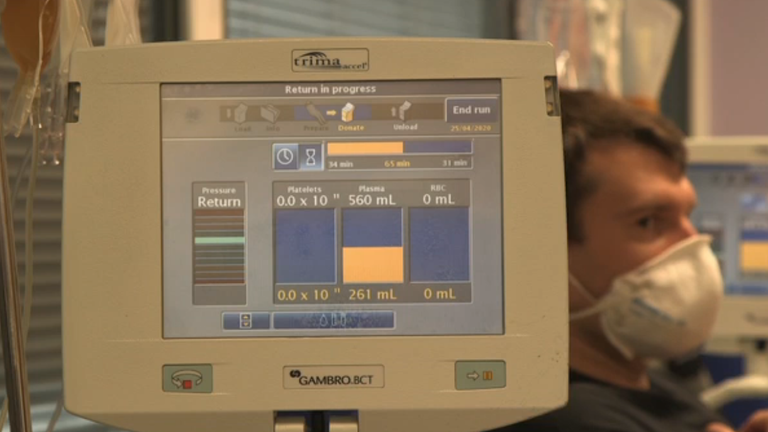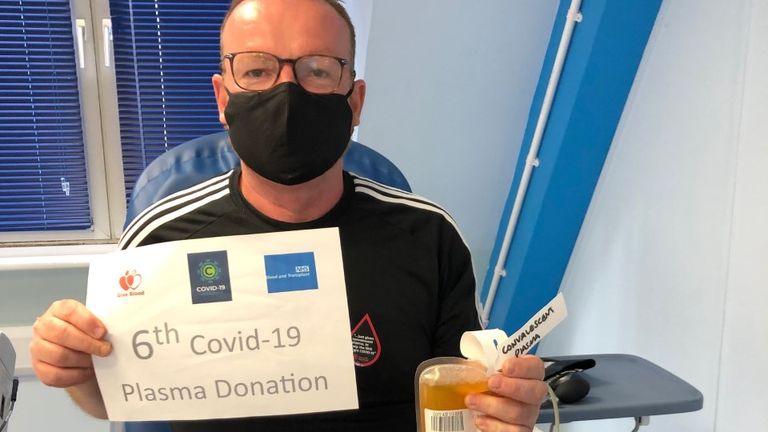The NHS is urgently appealing for people who have had coronavirus to donate plasma so it can be used as a possible treatment in case of a second wave.
Coronavirus survivors will have produced antibodies against the virus and there is some evidence that if plasma containing antibodies is transfused to patients who have COVID-19, it can help them to recover.
“It could save lives,” said Professor Mike Murphy, a consultant haematologist who works for NHS Blood and Transplant.
He said data from studies in the US is promising, and results from UK trials should determine whether or not it does work as a coronavirus treatment by the end of the year.
“As well as collecting plasma for the trials, we’re scaling up collection so that if the trials demonstrate effectiveness then we’ve got plenty of plasma to treat many more patients,” he said.
So far, almost 17,000 donations have been made but the NHS is hoping to reach 85,000 donations in order to complete the trials and have enough plasma stored for patients who may need it.
But a decrease in the numbers of people with coronavirus means there are fewer potential donors.
And although anyone who has had COVID-19 could have enough antibodies to donate, tests have shown particular groups of patients usually have higher levels of antibodies than others.
“People who have been sick in hospital and men tend to have higher levels of antibodies,” said Prof Murphy.
“So we’re particularly appealing to people who have been treated in hospital for COVID and for men to come forward to donate.”
:: Subscribe to the Daily podcast on Apple Podcasts, Google Podcasts, Spotify, Spreaker
Darren Buttrick has been donating plasma since April and today marks his seventh donation.
The 49-year-old father-of-three, from Coven in Staffordshire, was given a 50/50 chance of survival when he was put on a ventilator in intensive care after contracting coronavirus in March.
His condition deteriorated so rapidly he was given just 15 minutes to call his family before he was sedated and ventilated.
“I can honestly say it was the worst 15 minutes of my life,” he said. “Having to ring your wife and hear her sobbing, ring your parents and they want to swap places with you.
“You cannot explain that feeling of ‘I may never wake up from this’.”
Since making a full recovery, he has been donating plasma once a fortnight in Birmingham and hopes that by doing so he can help someone else avoid the same ordeal.
“I will carry on donating as long as my antibodies are high enough,” he said.
“I definitely want to give back what I was given. I was given a new lease of life by medicine and by people I’ll never be able to thank enough.”
Prof Murphy describes the process of plasma donation as “safe and easy”.
“It’s very similar to blood donation,” he said, adding that the whole process takes around 40 minutes.
“In the case of plasma donation, the blood goes into a cell separator machine, it spins the blood, separates the plasma from the blood cells and returns the blood cells to you.
“Over 170 hospitals in the UK are signed up to doing the trial so we’re hoping to complete the trials as soon as possible.”



